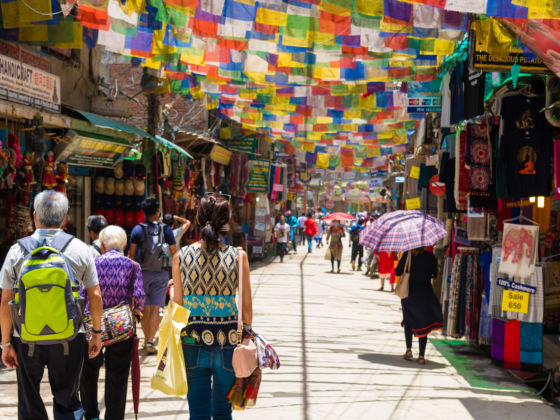On the rooftop restaurant of the Alobar1000, whenever a joint gets smoked, a Kathmandu tradition is kept alive. A toke in Kathmandu is like a prayer in Jerusalem.
As an old Westerner whose ’60s generation of spiritual seekers and drug worshipers inspired Nepalese to name a street after them (Freak Street), I’m filled with nostalgia by the ignited weed, despite my lackluster history as a drug user, despite this being my first time ever in Kathmandu.
